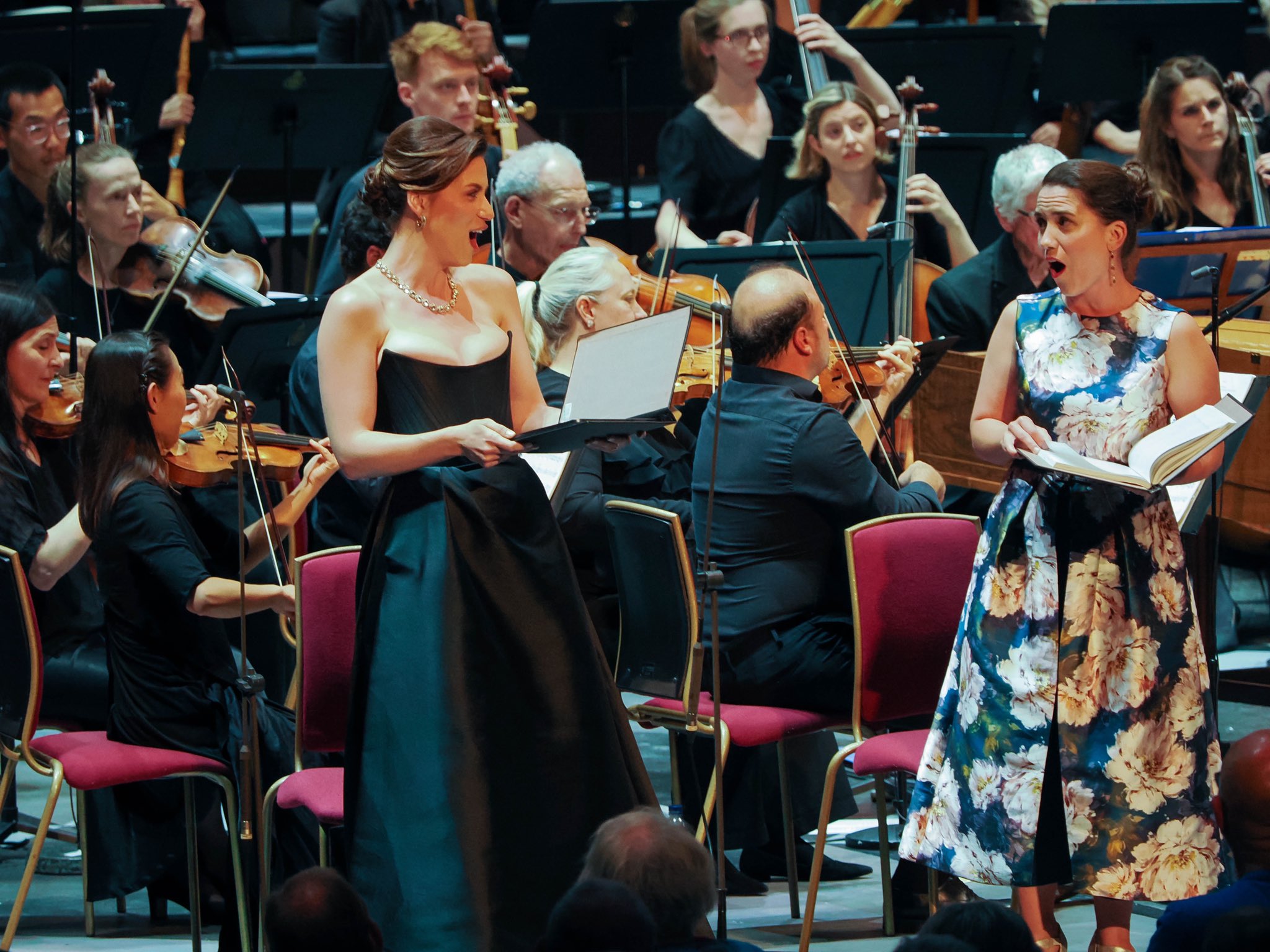I doubt that we will ever hear a complete Samson at the Proms. It really is very long; the Bärenreiter vocal score is an inch thick, and one recording lasts nearly three-and-a half hours. Even Handel generally cut it after the first performance, and Laurence Cummings’ rendition was modelled on the shortened scheme from later in the oratorio’s first season in 1743.
In the title role, Allan Clayton looked as well as sounded the part. No effete Oxbridge tenor he – big of body and long of lock, he embodied the character’s progression from defeat and despair through anger to acceptance of his divinely-ordained fate. Well capable of filling the Albert Hall when necessary, he could also reduce his sound to an ethereal pianissimo, and his final, great aria “Thus when the sun” was an absorbing moment. Jacquelyn Stucker’s dark-voiced Dalila was plainly bad news from her first entrance – the part can be handled more coquettishly, but here we had a woman with agency, and the scene of recrimination between her and Samson built to a powerful climax. She was followed by Brindley Sherratt’s formidable Harapha, singing without a score, a figure of bullying menace as well as braggadocio.
As Samson’s loyal companion Micah, Jess Dandy was able to show off impressive low notes in her first aria (how rare it is to encounter a real contralto these days), though I would have liked a less declamatory style and a greater sense of line in the aria “Return O God of hosts”. Jonathan Lemalu was sadly underused as Manoah, much of his part having ended up on the cutting-room floor, but he was eloquent and touching in his beautiful Act 3 aria “How willing my paternal love”. Joélle Harvey combined the roles of Israelite and Philistine woman, changing her dress for the latter, and sang with wonderful purity of tone. It fell to her to sing the most famous number in the piece, the concluding aria “Let the bright Seraphim”, for which she was joined at the front of the stage by David Blackadder, executing the natural trumpet part with faultless control.
The Albert Hall is far bigger than any space which Handel would have performed in, and the Academy of Ancient Music was scaled up for the occasion, with a string group almost as large as that in a modern symphony orchestra. There was little if any loss of definition or clarity in this performance, directed con brio from the harpsichord by Cummings. Only the horns seemed a little off-form, perhaps a side-effect of the sultry atmosphere in the Hall. The chorus was provided by the Philharmonia Chorus, at around 120 singers again far larger than Handel would have expected, but singing with unfailing precision and sensitivity.
William Hale.

